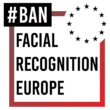
Whilst the European Parliament has been fighting bravely for the rights of everyone in the EU to exist freely and with dignity in publicly accessible spaces, the government of Portugal is attempting to push their country in the opposite direction: one of digital authoritarianism.
The Portuguese lead organisation in the Reclaim Your Face coalition D3 (Defesa Dos Direitos Digitais) are raising awareness of how the Portuguese government’s new proposed video surveillance and facial recognition law amounts to illiberal biometric mass surveillance. Why? Ministers are trying to rush the law through the Parliament, endangering the very foundations of democracy on which the Republic of Portugal rests.
Eerily reminiscent of the failed attempts by the Serbian government just two months ago to rush in a biometric mass surveillance law, Portugal now asked its Parliament to approve a law in a shocking absence of democratic scrutiny. Just two weeks before the national Assembly will be dissolved, the government wants Parliamentarians to quickly approve a law, without public consultation or evidence. The law would enable and encourage widespread biometric mass surveillance – even though we have repeatedly shown just how harmful these practices are.
Reclaim Your Face lead organisation EDRi sent a letter to representatives of Portugal’s main political parties, supporting D3’s fight against biometric mass surveillance practices that treat each and every person as a potential criminal. Together, we urged politicians to reject this dystopian law.
Read EDRi’s letter below.
You can also read D3’s thread (in Portuguese) explaining further why this proposed law is such a problem.
Re: Serious fundamental rights concerns about proposed Portuguese video surveillance Law 111/XIV/2
I am writing to you and your colleagues on behalf of European Digital Rights (EDRi), a network of 45 digital human rights groups from across Europe, including D3 – Defesa dos Direitos Digitais, to urge you to oppose this proposed law.
We want to express our deep concern about the Proposed Law 111/XIV/2 on the use of video surveillance by security forces and services. Despite providing no evidence of effectiveness, necessity or proportionality of these measures, the proposal puts forward sweeping measures which would permit the constant video and biometric mass surveillance of each and every person.
There are many reasons why this proposal is likely to be incompatible with the essence of Portugal’s constitutional obligations to ensure that restrictions on fundamental rights are necessary and proportionate (article 18/2); with Portugal’s obligations under the Charter of Fundamental Rights of the European Union (including but not limited to articles 1, 7, 8, 11, 12, 20, 21, 41, 47, 48 and 49); and the European Convention on Human Rights (ECHR).
The proposed law 111/XIV/2:
1.Removes current legal safeguards limiting the use of invasive video surveillance, such that the permanent and nearly omnipresent use of these systems in publicly accessible spaces may be permitted;
2.Permits video surveillance by aerial drones without limits, further creating possibilities for the pervasive public surveillance; and
3.Establishes that these vast video surveillance networks may be combined with facial recognition and other AI-based systems in public spaces. Such practices enable the omnipotent tracking of individuals, and can thus unduly interfere with a wide range of people’s rights including to: privacy and data protection; as well as to express, associate and assemble freely; to have respect for their rights to equality, non-discrimination and dignity; as well as rights to the presumption of innocence and other due process rights.
Furthermore, the proposal recklessly removes existing safeguards:
Law 111/XIV/2 proposes to withdraw vital powers from the national data protection authority, the Comissão Nacional de Protecção de Dados (CNPD). This means that not only has the government proposed measures which contradict Portugal’s data protection obligations, but that the very authorities designated to protect people’s from undue violations of their rights will be deliberately prevented from being able to carry out their vital public duties. The CNPD have called this proposal a “gross violation of the principle of proportionality” and have emphasised that it is likely incompatible with the Portuguese Constitution.
The proposal enables biometric mass surveillance practices:
The combined effect of these measures would be highly likely to unduly restrict the rights and freedoms of large parts of the Portuguese population and to constitute unjustified biometric mass surveillance practices. Such measures treat each person as a potential suspect, and they obscure the possibility of targeted use, as passers-by are an inherent feature of public spaces. Over 63.000 EU citizens have already objected to these practices via the Reclaim Your Face campaign, including close to 750 Portuguese nationals.
The Italian Data Protection Authority has further confirmed that uses of facial recognition and other biometric identification in public spaces constitutes mass surveillance, even when authorities are searching for specific individuals on a watch-list. This is because, as the European Data Protection Supervisor (EDPS) and Board (EDPB) have emphasised, the personal data and privacy of anyone passing through that space is unduly infringed upon by such surveillance.
Another particular risk arises from the fact that the proposal requires the processing of especially sensitive data. People’s biometric data, such as their faces, are central to their personal identity and sometimes their protected characteristics. Their processing can therefore infringe on rights to dignity, equality and non-discrimination, autonomy and self-determination.
The proposal is at odds with the European Parliament and the United Nations:
The proposed law stands in direct contradiction to the position of the European Parliament, which voted in October 2021 to adopt the ‘AI and criminal law’ report. This official report call to ban biometric mass surveillance, including of the kind that is being proposed in law 111/XIV/2. Other EU opposition to such practices includes the proposed ban on real-time remote biometric identification (RBI) by law enforcement in the EU’s Artificial Intelligence Act, and a call from the EDPS and EDPB to implement a “general ban any use of AI for an automated recognition of human features in publicly accessible space.”
The need to prohibit, rather than legalise, such practices has also been confirmed by the UN High Commissioner for Human Rights, who warned that it “dramatically increases the ability of State authorities to systematically identity and track individuals in public spaces, undermining the ability of people to go about their lives unobserved” and should therefore be limited or banned.
The proposal undermines the essence of a democratic society:
Mass surveillance is not just bad for individuals, but also for communities. The landmark Census judgement of the German Constitutional Court articulated the threats not only to people’s political rights and civil rights, but also to democracy and “the common good, because self-determination [which is harmed by mass surveillance] is an essential prerequisite for a free and democratic society that is based on the capacity and solidarity of its citizens.”
European and international human rights groups have raised the severe harms of biometric mass surveillance. Constant, invasive surveillance disincentivises people from protesting; suppresses anti-corruption efforts by making it harder for sources to blow the whistle anonymously; and has a general chilling effect on people’s rights and freedoms. Biometric mass surveillance systems have been used across Europe and the world to spy on groups including human rights defenders, LGBT+ communities and people going to church.
Lastly, the hurried manner in which this proposal has been brought forward is grave cause for concern. With the upcoming dissolution of the Portuguese Parliamentary Assembly, the government aims to push through this rights-violating proposal in a rushed manner and without public consultation. This prevents proper democratic scrutiny of the proposal and will undermine people’s trust in the legislative process.
We urge you to consider the rights and freedoms of the people of Portugal and your obligations under constitutional, EU and international law, to reject the proposed video surveillance law 111/XIV/2. We are at your disposal should you wish to discuss any of the above.
Yours sincerely, Diego Naranjo
Head of Policy, EDRi
Building on your support, we can to show EU leaders that we do not support the use of technologies that turn our publicly accessible spaces into a permanent police line-up.
Help us grow stronger and sign our citizens’ initiative to ban biometric mass surveillance!



















































































1 Comments